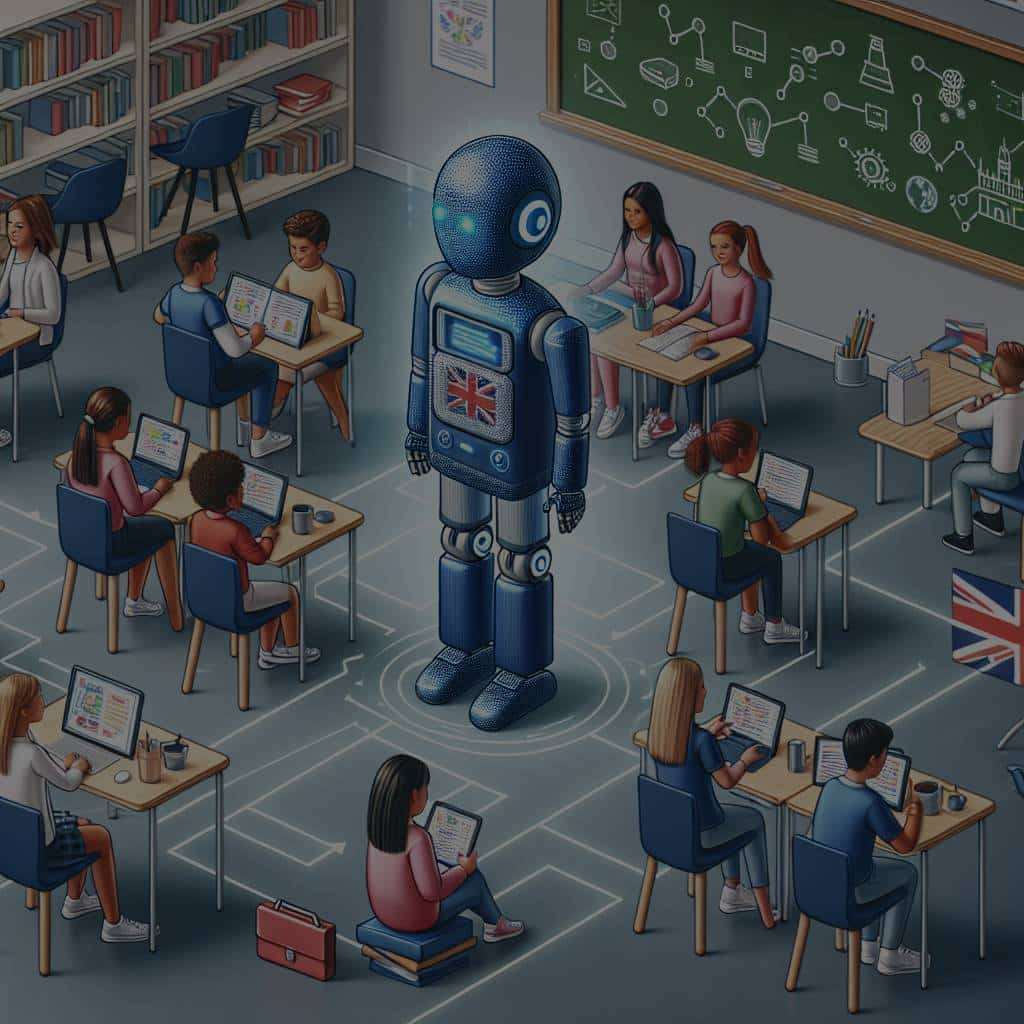In the realm of education, Artificial Intelligence (AI) is proving to be a game-changer. With its ability to transform the learning process by providing personalized educational experiences, AI is revolutionizing the education sector. For you, the educators and administrators of UK’s educational institutions, it is crucial to understand how AI can help you to enhance students’ learning experiences. In this context, we will explore how AI can facilitate personalized learning, and how you, the educators, can leverage this technology to its maximum potential.
Deciphering Students’ Learning Needs with AI
Before diving into the ways AI can personalize learning, it’s essential to understand how AI can decipher students’ learning needs. AI systems can analyze student data to gain a comprehensive understanding of students’ learning patterns, strengths, weaknesses, and preferences. This information can provide valuable insights for teachers, enabling them to adapt their teaching methods to match the unique learning styles of each student.
Topic to read : What Are the Latest Innovations in Eco-Friendly Transportation for UK City Planners?
AI can scrutinize data from various sources such as performance metrics, student feedback, and learning materials used. This data-driven approach helps in identifying students who are struggling, areas where students typically face difficulties, and the types of content that most effectively engage students. In essence, AI equips educators with the tools needed to discern the specific learning needs of individual students, thereby allowing for more personalized and effective education.
Facilitating Personalized Content Delivery
AI’s role extends beyond just understanding students’ learning needs; it can also help in the delivery of personalized content. AI systems can curate and customize educational content based on the learning preferences and academic proficiency of each student. This kind of personalization ensures that students are learning at their own pace and that the content they are engaging with is tailored to their unique needs and abilities.
Additional reading : What Are the Marketing Benefits of Leveraging Augmented Reality in UK Retail?
For instance, AI can analyze a student’s engagement with a particular topic and subsequently, recommend related content to deepen their understanding. Similarly, if a student is struggling with a concept, AI can provide additional resources or modify the content to make it more digestible. Furthermore, AI can offer adaptive learning pathways, guiding students through the curriculum in a way that aligns with their personal learning trajectory. This level of personalization can significantly enhance students’ learning experiences, making education more engaging and effective.
Improving Teacher-Student Interaction with AI
AI can also play a pivotal role in improving teacher-student interactions. Teachers often have a limited amount of time to devote to each student, making it challenging to provide the level of individual attention that each student might require. AI can support teachers by automating administrative tasks, thereby freeing up more time for them to interact with students.
Moreover, AI can assist teachers in tracking student progress and identifying areas where they may need additional support. AI-powered systems can alert teachers if a student is falling behind or if they are not engaging with the material. This information allows teachers to intervene early and provide the necessary support to help the student get back on track. Thus, AI not only augments the teaching process but also helps to improve the quality of interaction between teachers and students.
AI’s Role in Assessment and Feedback
Assessment and feedback are integral parts of the educational process, and AI has the potential to enhance both these areas. AI can be used to provide immediate, personalized feedback, helping students understand where they made mistakes and how they can improve. This instant feedback mechanism can significantly enhance students’ learning experiences, as they can immediately correct their errors and reinforce their understanding of the material.
Additionally, AI can also assist in developing personalized assessments. Rather than a one-size-fits-all approach, AI can generate assessments tailored to each student’s learning level. This ensures that the assessments are challenging but fair, encouraging students to push their boundaries and realize their full potential.
Preparing Students for the Future with AI
Finally, AI can help schools prepare students for the future. As technology becomes increasingly integrated into all aspects of life, it’s essential for students to be tech-savvy. By incorporating AI into the learning process, schools can provide students with firsthand experience of using advanced technology.
Moreover, AI can also help students develop essential 21st-century skills such as problem-solving, critical thinking, and digital literacy. For instance, AI can present complex, real-world problems for students to solve, thereby honing their problem-solving and critical thinking skills. Thus, AI not only personalizes learning but also plays a crucial role in equipping students with the skills they need to navigate the future.
In conclusion, AI presents a host of opportunities for personalizing learning in UK’s educational institutions. By decoding students’ learning needs, facilitating personalized content delivery, enhancing teacher-student interaction, improving assessment and feedback, and preparing students for the future, AI can transform the educational landscape. For you, the educators, it’s time to embrace AI and harness its power to provide a more personalized, effective, and future-ready education for your students.
Mitigating Data Privacy Concerns with AI
Artificial intelligence in education comes with its share of concerns, most notably regarding data privacy and security. As AI systems rely heavily on student data to personalize learning, it’s crucial for educational institutions to ensure the privacy and security of this data. AI can be used to protect data and mitigate privacy concerns while still providing a personalized learning experience.
AI-driven technologies can help in anonymizing student data, ensuring that personal identifiers are removed before the data is used for analysis. This way, students’ privacy is maintained while still allowing the system to gain insights into their learning patterns and preferences. This balance is crucial in maintaining trust between the institution and students, and ensuring the successful implementation of AI in education.
Furthermore, AI can be used to detect and prevent data breaches. AI systems can monitor patterns and anomalies in data access and usage, allowing them to detect potential threats and take preventative action. This proactive approach can go a long way in ensuring the security of student data, making AI not just a facilitator of personalized learning but also a protector of data privacy.
The Future of AI in UK’s Higher Education
As we look into the future, it’s clear that Artificial Intelligence will continue to play an increasingly important role in the UK’s higher education sector. Machine learning, a subset of AI, can further enhance personalized learning by continuously learning from student data and improving its algorithms to provide even more personalized and effective learning experiences.
Moreover, AI-powered intelligent tutoring systems can provide one-on-one tutoring to students, offering real-time feedback and support. These systems can adapt to each student’s learning pace and style, providing a truly personalized learning experience.
However, as AI becomes more pervasive in education, it’s essential for educational institutions to address potential challenges such as data privacy concerns, the need for digital literacy among educators, and the risk of over-reliance on technology. By proactively managing these challenges, UK’s educational institutions can harness the full potential of AI to provide a more personalized, engaging, and effective education for young people.
In conclusion, there is no doubt that AI has the potential to revolutionize the education system in the UK. By providing personalized learning experiences, enhancing learning outcomes, and preparing students for a technology-driven future, AI can significantly improve the quality of education. However, it’s crucial for educators to approach AI implementation thoughtfully, ensuring that students’ data privacy is protected, and the human element in education is preserved. With a balanced and mindful approach, AI can indeed be a powerful tool in shaping the future of education.











